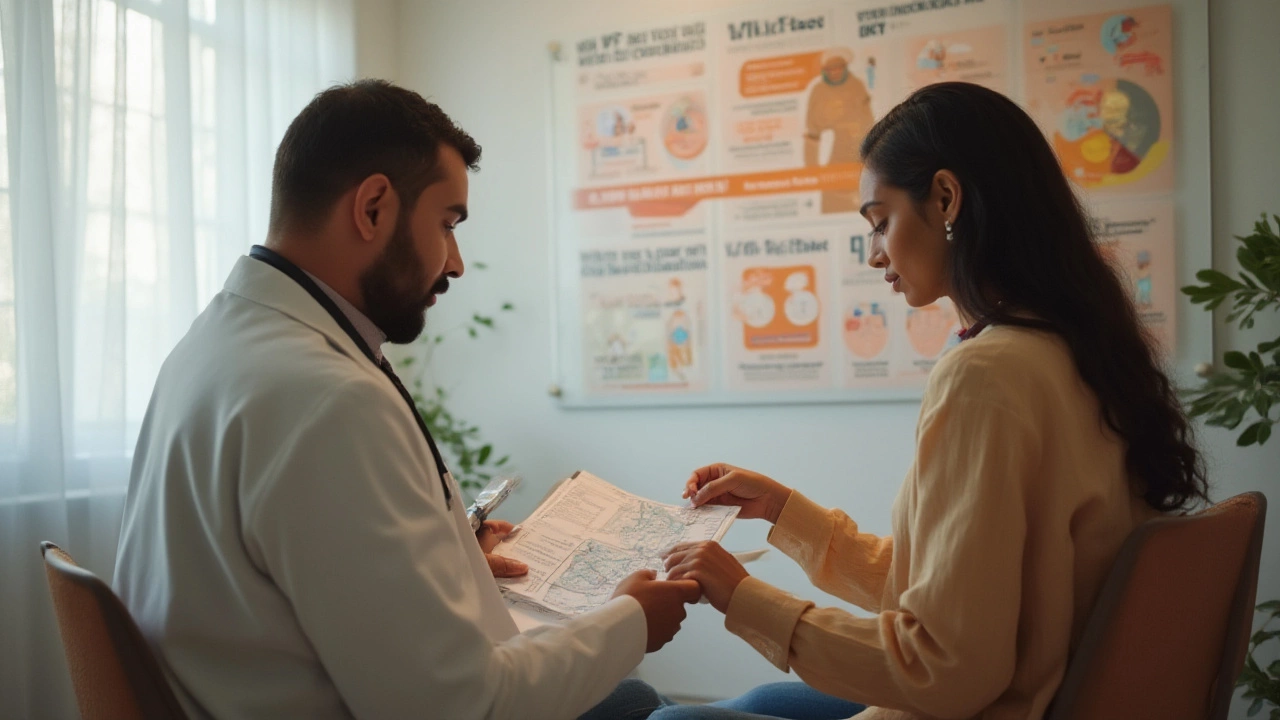IVF Risk: Essential Facts Every Prospective Parent Should Read
If you’re thinking about in‑vitro fertilization, it’s normal to feel excited and nervous at the same time. IVF can turn the dream of a baby into reality, but like any medical procedure it comes with its own set of risks. Knowing what to expect helps you make smarter choices and reduces anxiety when you step into the clinic.
Common Physical Risks of IVF
First, the hormone injections used to stimulate the ovaries can cause side effects. Most people experience mild bloating, mood swings, or breast tenderness. In about 5‑7 % of cycles, the ovaries become overly swollen – a condition called ovarian hyperstimulation syndrome (OHSS). Symptoms range from mild abdominal discomfort to severe fluid buildup that may need hospital care. Your doctor will monitor hormone levels closely to catch OHSS early.
Another big concern is multiple pregnancies. Because several embryos are often transferred to improve success rates, there’s a higher chance of twins or triplets. Multiple births increase the risk of pre‑term delivery, low birth weight, and complications for both mother and babies. Many clinics now recommend transferring fewer embryos to keep the odds of a single, healthy baby higher.
Procedural risks are generally low but still worth noting. The needle used to retrieve eggs can cause bruising, infection, or, rarely, damage to surrounding organs. Similarly, embryo transfer is a quick, almost painless step, yet it can cause mild cramping or spotting. These issues usually resolve in a few days, but prompt reporting to your clinic is essential.
Long‑Term and Emotional Considerations
IVF isn’t just a physical journey; it’s an emotional roller‑coaster. The stress of hormone shots, waiting for results, and the possibility of failure can take a toll on mental health. Couples often report anxiety, depression, or relationship strain during treatment cycles. Talking to a counselor or joining a support group can provide a safe space to share feelings and coping strategies.
There’s also ongoing debate about the long‑term health of children conceived through IVF. Current research shows most outcomes are similar to naturally conceived children, but a slight increase in certain birth defects has been observed. Staying informed about the latest studies helps you weigh benefits against potential risks.
So, how can you keep these risks as low as possible? Choose a reputable clinic with a solid track record, and make sure they tailor hormone doses to your body rather than using a one‑size‑fits‑all approach. Follow all pre‑treatment guidelines – maintain a healthy weight, quit smoking, limit caffeine, and discuss any medications you’re taking. Regular ultrasounds and blood tests throughout the cycle let your doctor adjust treatment on the fly, which is the best way to avoid severe OHSS or other complications.
Finally, keep communication open with your partner and your care team. Ask questions about any side effect you notice, and don’t hesitate to postpone a cycle if you feel unwell. IVF is a powerful tool, but it works best when you’re informed, prepared, and supported every step of the way.

Biggest IVF Risks: Understanding Complications, Side Effects, and Safety Tips
A deep dive into the biggest risk of IVF, critical complications, and safety insights to support couples on their fertility journey. Real facts, statistics, and expert tips.

How Soon Can You Do IVF After Having a Baby?
Mar, 20 2025

Can Ashwagandha Cause Weight Gain?
Mar, 9 2025

How to Choose an Online Pharmacy: A Practical Guide
Jun, 10 2025

